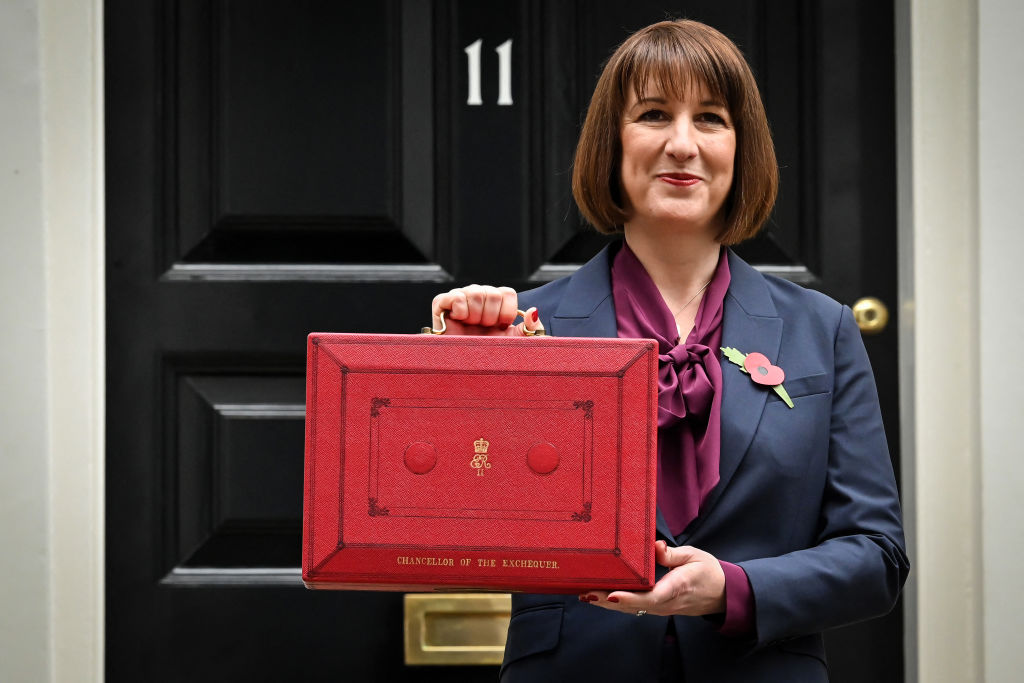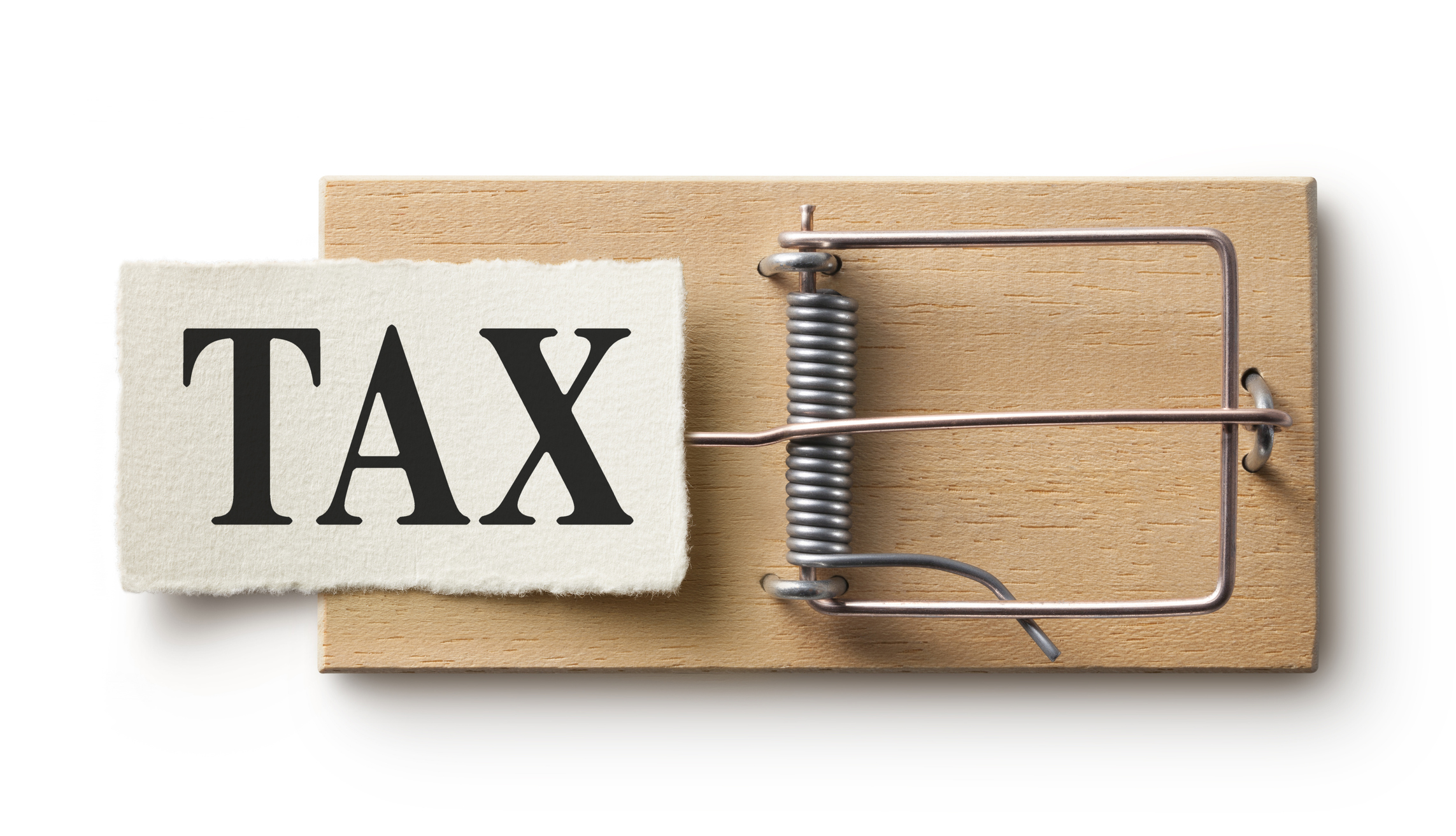How to navigate the child-benefit maze
The child benefit system is infernally complicated and rife with potential pitfalls.


Get the latest financial news, insights and expert analysis from our award-winning MoneyWeek team, to help you understand what really matters when it comes to your finances.
You are now subscribed
Your newsletter sign-up was successful
Want to add more newsletters?

Twice daily
MoneyWeek
Get the latest financial news, insights and expert analysis from our award-winning MoneyWeek team, to help you understand what really matters when it comes to your finances.

Four times a week
Look After My Bills
Sign up to our free money-saving newsletter, filled with the latest news and expert advice to help you find the best tips and deals for managing your bills. Start saving today!
Get it wrong when filling in the paperwork to claim child benefit and you could face several problems. You might have to fill in a self-assessment tax return in order to hand back part of your child benefit, or you could end up with a diminished state pension. But don’t assume the easiest option is simply not to claim the money instead. That too could have long-term consequences for your finances.
In January 2013 the government introduced the High Income Child Benefit Charge (HICBC). Anyone, or their partner, who gets child benefit and earns over £50,000 a year must hand back some of the money. Once you earn £50,000 a year child benefit is withdrawn at a rate of 1% for every £100 you earn over that threshold. So if you, or your partner, earn more than £60,000 you aren’t entitled to any child benefit at all.
A classic tax faff
The problem is rather than simply pay you less child benefit, the government hands out the same amount of child benefit, but expects you to pay back what you aren’t entitled to. This means filling in a self-assessment tax return in order to state how much child benefit you have received, how much you earn and how much you need to hand back. A classic tax faff if ever there was one.
MoneyWeek
Subscribe to MoneyWeek today and get your first six magazine issues absolutely FREE

Sign up to Money Morning
Don't miss the latest investment and personal finances news, market analysis, plus money-saving tips with our free twice-daily newsletter
Don't miss the latest investment and personal finances news, market analysis, plus money-saving tips with our free twice-daily newsletter
As a result, many higher-earning families have simply stopped bothering to claim child benefit so they don’t have to go through the hassle of paying it back. The problem is that this can have a significant impact on your state pension if one of you isn’t working full time.
When you give up work to look after children aged under 12 you are entitled to National Insurance credits so that you continue to build up the amount of state pension you will receive despite being out of the workforce. These credits are triggered by claiming child benefit. If you don’t claim you won’t get the credits and, as a result, you may end up with a smaller state pension.
The simple way around this if your household earns too much to receive child benefit is to fill in the claim form, but tick the box to say you don’t actually want to receive the money. This will mean you still get the National Insurance credits, but don’t have the hassle of paying back child benefit that you are not entitled to.
However, when you are filling in the child benefit forms make sure you don’t fall into another trap: registering in the wrong name. The problem arises when child benefit is claimed by the parent still in work rather than the parent at home with the child. If this happens, the latter, typically mothers with young children, can miss out on those all-important National Insurance credits. So make sure you claim child benefit in the name of the parent who is not working.
Get the latest financial news, insights and expert analysis from our award-winning MoneyWeek team, to help you understand what really matters when it comes to your finances.

Ruth Jackson-Kirby is a freelance personal finance journalist with 17 years’ experience, writing about everything from savings accounts and credit cards to pensions, property and pet insurance.
-
 Should you buy an active ETF?
Should you buy an active ETF?ETFs are often mischaracterised as passive products, but they can be a convenient way to add active management to your portfolio
-
 Power up your pension before 5 April – easy ways to save before the tax year end
Power up your pension before 5 April – easy ways to save before the tax year endWith the end of the tax year looming, pension savers currently have a window to review and maximise what’s going into their retirement funds – we look at how
-
 The most and least expensive countries to be an expat in 2025
The most and least expensive countries to be an expat in 2025With some Brits fleeing the country to avoid seemingly ever-increasing taxes, we look at the most and least expensive countries to emigrate to.
-
 What has changed with employers’ National Insurance – and how will it impact you?
What has changed with employers’ National Insurance – and how will it impact you?Will you feel the effects of the National Insurance hike, as businesses warn of redundancies, smaller pay rises and higher inflation?
-
 Conservatives pledge to cut National Insurance again – how much could you save?
Conservatives pledge to cut National Insurance again – how much could you save?News A 2p reduction in National Insurance is a key feature of the Tory’s general election manifesto.
-
 Workers set for new national insurance tax cut – how much will you save?
Workers set for new national insurance tax cut – how much will you save?News National insurance tax rates have fallen but frozen allowances may limit the benefits.
-
 Budget 2024: National Insurance cut, a new British ISA, and reform of the child benefit charge - here’s what has been announced
Budget 2024: National Insurance cut, a new British ISA, and reform of the child benefit charge - here’s what has been announcedThe chancellor has announced a host of changes, including cutting National Insurance again, and abolishing some tax reliefs. Here’s how the Budget will affect your finances.
-
 Brace for a year of tax rises
Brace for a year of tax risesThe government is strapped for cash, so prepare for tax rises. But it’s unlikely to be able to squeeze much more out of us.
-
 Topping up state pension to become easier with new online tool
Topping up state pension to become easier with new online toolAnyone looking to buy extra National Insurance contributions and boost their state pension currently has to make multiple phone calls - but a new online tool is on its way.
-
 Gender pensions gap - are women paying a parenthood penalty?
Gender pensions gap - are women paying a parenthood penalty?Trade body warns women face serious obstacles to saving enough for retirement as the gender pensions gap continues. Is raising a family having a detrimental impact on our pension pot?